Preserve fresh herbs with these easy freezing methods, plus expert tips on using them in recipes all year long.
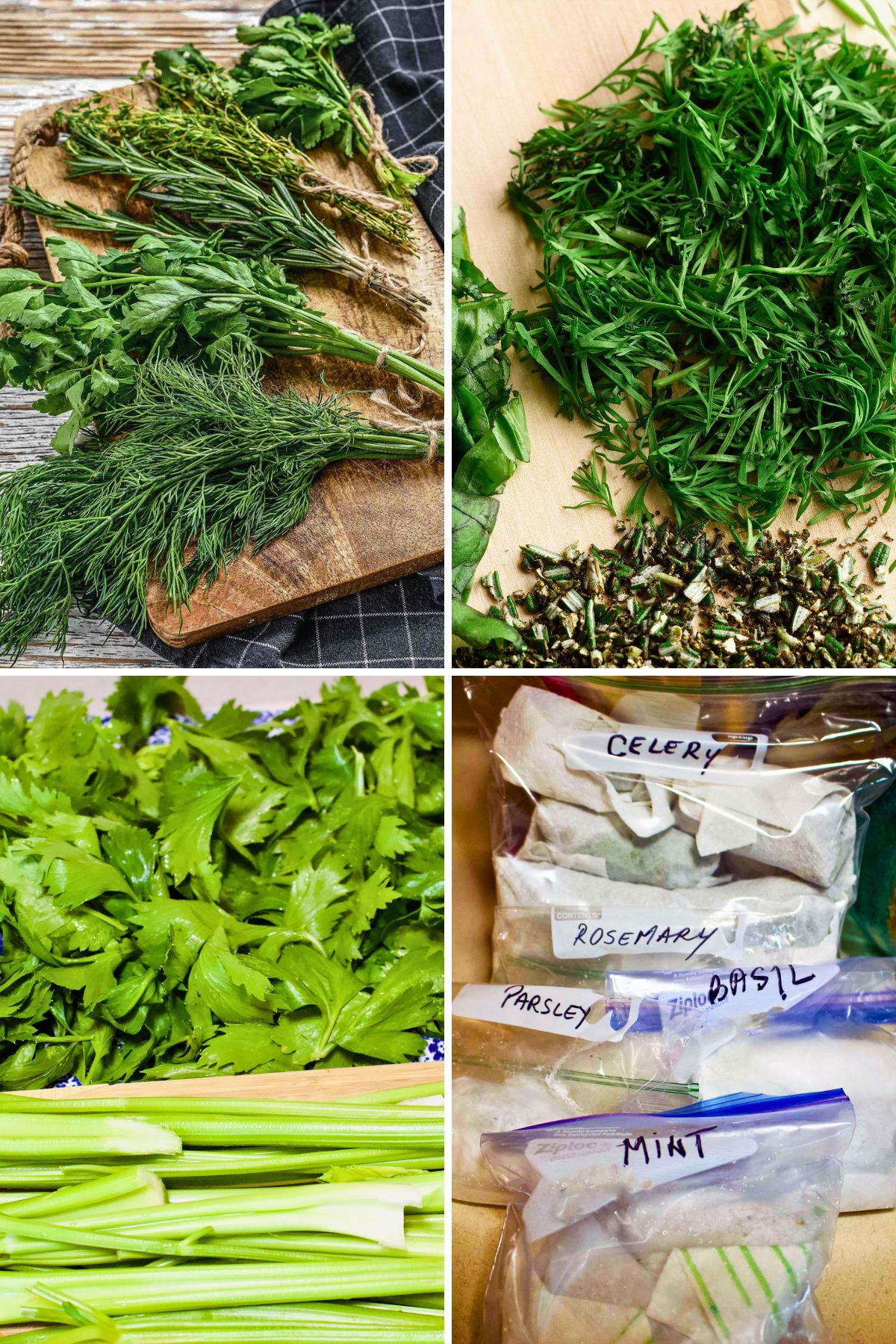
Jump to:
Why freeze herbs?
Freezing herbs is a simple and effective way to preserve the flavors of summer for use during the colder months. I remember growing up in Romania, when my family would prepare for winter by preserving everything, including herbs, vegetables, and fruits, you name it. We didn’t have supermarkets back then, so our entire winter pantry came from the local market. Even today, living in the U.S., I make sure to freeze my favorite herbs before the first frost hits.
Health Benefits & Sustainability
Freezing herbs maintains their natural oils and flavors, keeping them closer to fresh herbs than drying does. Plus, it reduces food waste and helps you use up any garden herbs before the first frost.
Which Herbs Are Suitable for Freezing
While not all herbs freeze well, many do, especially those with sturdy leaves. Here’s a list of herbs that freeze beautifully and retain much of their flavor:
- Parsley
- Cilantro
- Dill
- Rosemary
- Thyme
- Sage
- Chives
- Oregano
- Basil (Best frozen in olive oil)
Methods for Freezing Herbs
1. The Traditional Method (my favorite)
- Step 1: Wash the herbs and remove the stems. I like to use only the leaves.
- Step 2: Pat them dry thoroughly using a towel.
- Step 3: Wrap the herbs in paper towels and place them in labeled freezer bags. Store them in batches, enough for single recipes.
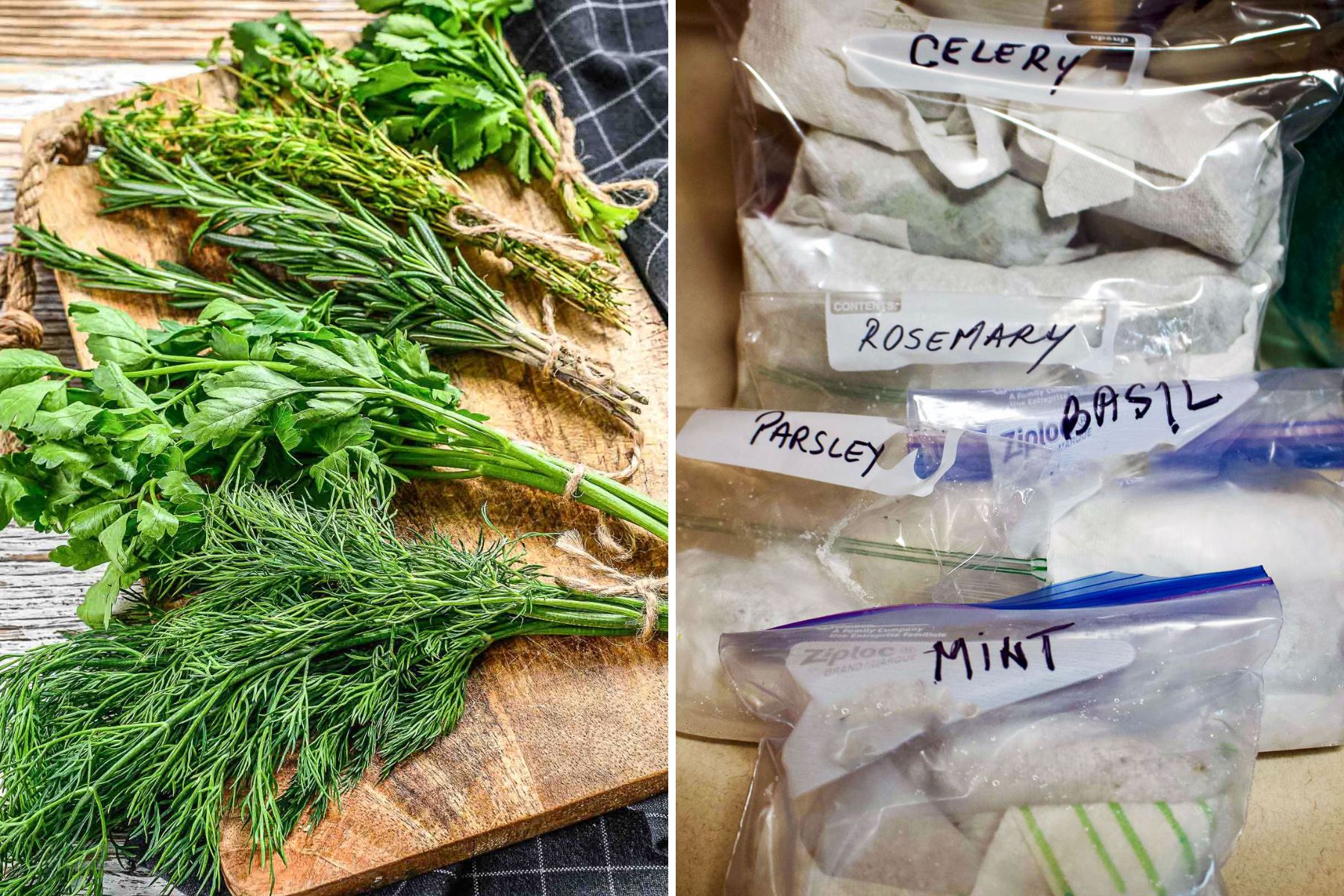
2. Ice Cube Tray Method
- Step 1: Finely chop your herbs and place them into ice cube trays.
- Step 2: Cover with olive oil, broth, or water.
- Step 3: Freeze, then pop the cubes out and store them in freezer bags for easy access.
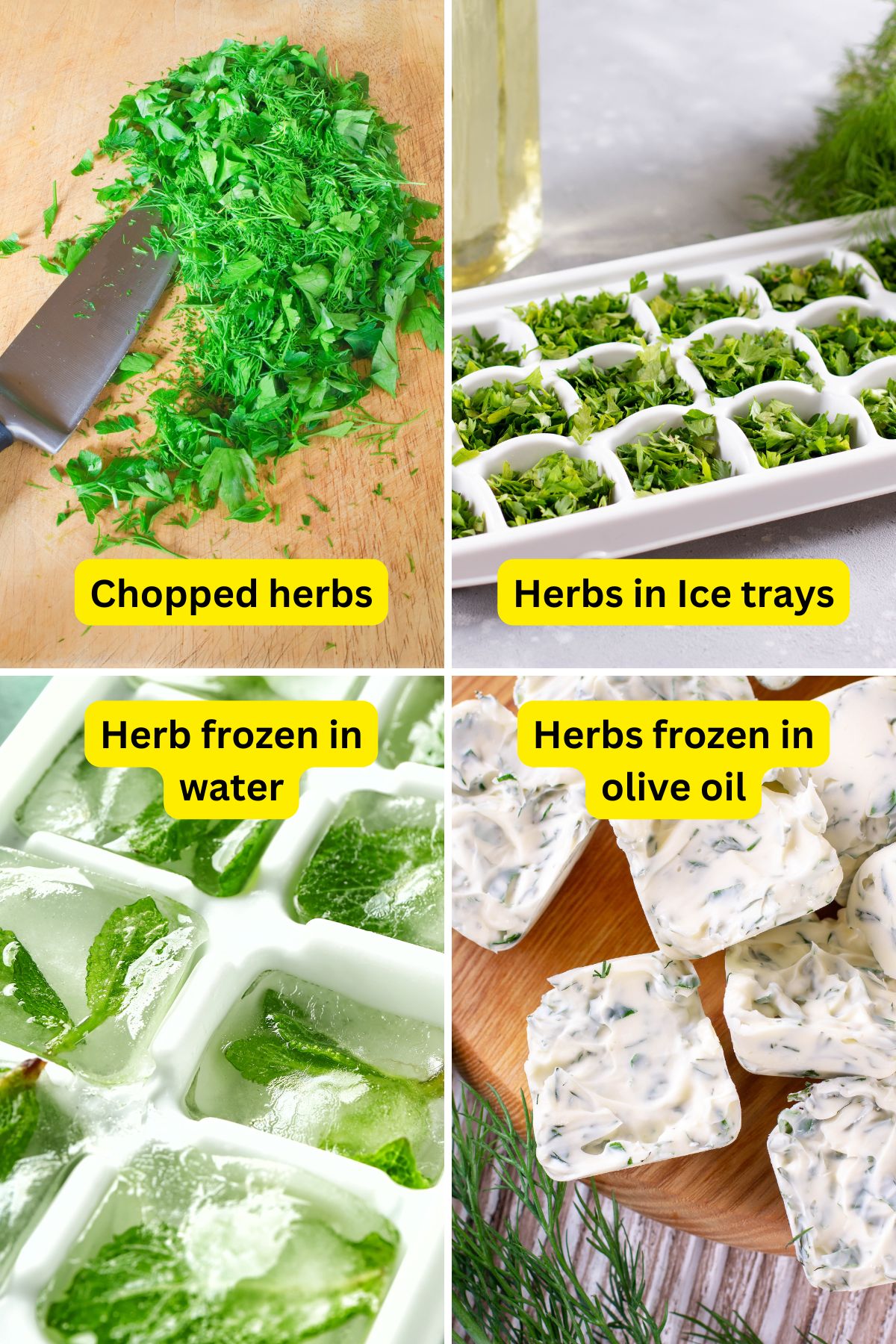
How Long Do Frozen Herbs Last?
Frozen herbs keep well for 4-6 months, though their flavor can diminish slightly after that time.
How to Use Frozen Herbs
- In soups and stews: Drop the frozen herbs directly into the pot.
- In sauces and marinades: Thaw the herbs and mix them into your favorite sauces.
- For drinks: Use frozen mint cubes to cool and flavor your favorite cocktails.
Freezing herbs is an excellent way to prepare for the winter months and save money. Whether you use the classic bag method or try the trendy ice cube trick, you’ll enjoy a fresh herb flavor all year. Give it a try this season, and you won’t be disappointed when winter rolls around!
Pro Tip: While frozen herbs aren’t great for garnishing salads, they can be added to salad dressings for extra flavor.
If you liked this tutorial, you might like another way of preserving herbs for the winter: How To Salt Preserve Herbs For The Winter. I use both methods every year and always have flavorful herbs for the dishes I make.
Recipes That Use Herbs
- Cilantro: Mexican Caldo De Pollo
- Parsley: Beef Vegetable Soup
- Dill: Hearty Potato Stew
- Thyme: Lemon Thyme Chicken Thighs
- Mint: Chocolate Mint Cake Recipe
- Basil: Easy Greek Lemon Rice Recipe (With Wine)
More Canning Recipes
📖 Recipe

Equipment
- Freezer-safe resealable bags or vacuum-sealed bags
- Sharp knife or herb scissors
- Cutting board
- Paper towels or a salad spinner
- Marker for labeling
Ingredients
- 2 cups fresh herbs (parsley, cilantro, dill, rosemary, etc.)
Instructions
- Wash the Herbs: Rinse the herbs thoroughly under cool water to remove dirt or debris. Pat the herbs dry with paper towels or use a salad spinner to remove excess moisture. Ensuring the herbs are dry helps prevent freezer burn.
- Remove the Stems: Use a sharp knife or herb scissors to remove the stems from the herbs. Only the leaves will be frozen, as they retain the most flavor and are easier to use in recipes.
- Prepare the Herbs for Freezing: Divide the herbs into small batches, based on the amount you typically use for a recipe. You can leave the leaves whole or roughly chop them to your preferred size.
- Pack the Herbs in Freezer Bags: Place each batch of herbs into labeled freezer-safe resealable bags. Squeeze out as much air as possible from each bag to prevent freezer burn.
- Store in the Freezer: Lay the bags flat in the freezer for better storage. Herbs will last for up to 6 months, though for the best flavor, use them within 3-4 months.
Notes
- Batch Size: Freeze herbs in small portions, preferably the amount you need for a dish.
- Labeling: Always label your bags with the type of herb and the date of freezing for easy identification.
- Best for Cooking: Frozen herbs are ideal for soups, stews, and cooked dishes but are unsuitable for garnishes due to texture changes.
- Air Removal: The less air in the bag, the better. You can use a vacuum sealer if available, but squeezing out the air manually works well too.

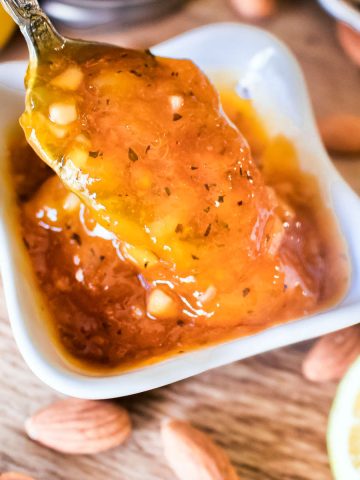

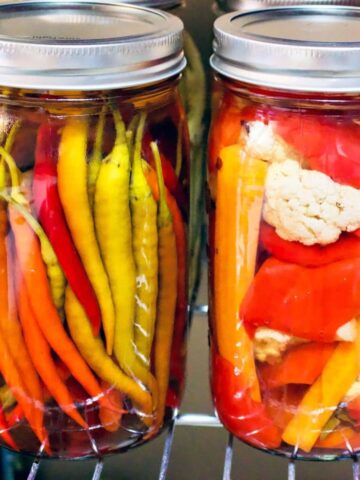
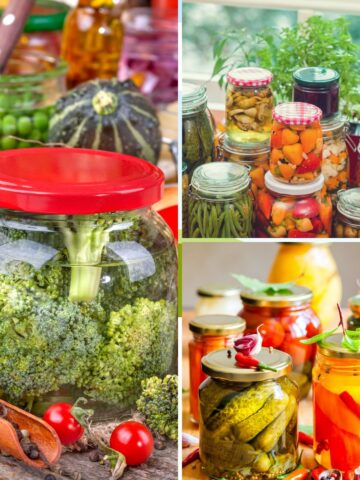
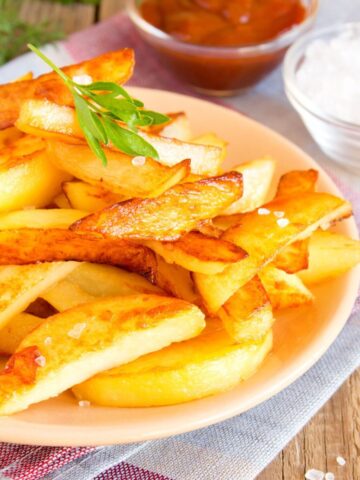
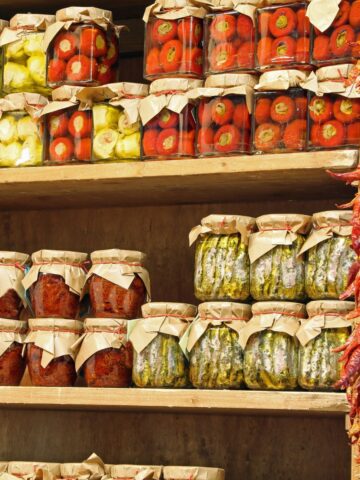
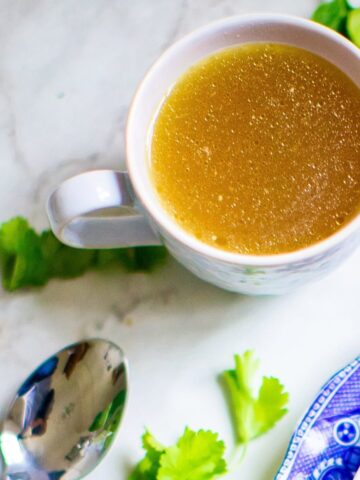

T says
Thank you for this content. Super helpful. Always good to save "thyme."🌿
Carol says
I have been freezing the dill I get from my garden like this for years. I could not survive a winter without adding dill to my favourite recipes in this way. At first I thought I must be the only person who has ever done this. Now I am happy to see that I am not alone.I wash and dry all the herbs I get, wrap in waxed paper and place in air tight baggies. I also freeze beet leaves in this way to make with my rice, beet leaf and cream dish. It contains dill as well and when you whip this dish up in the middle of a snow storm nothing will ever top the feeling and satisfaction you get!
Gabriela says
Thank you so much for your comment! I knew I was not alone either! Freezing herbs for winter is such an easy and satisfying thing to do!